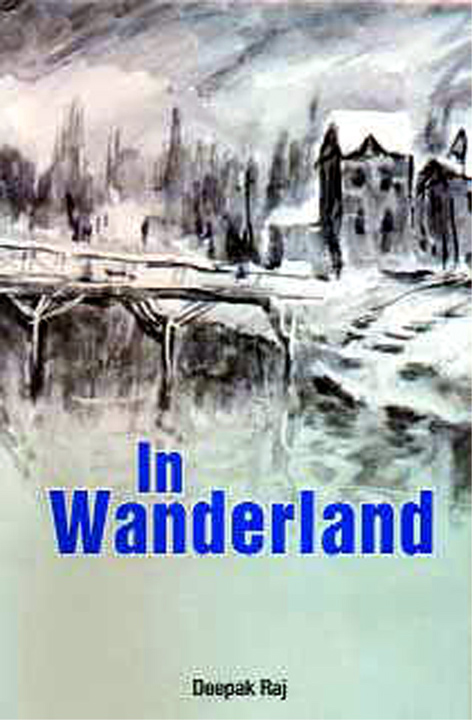Suman K. Sharma
Man is a territorial creature. Take him away from his home and he cries foul. The Holy Bible rues the Exodus of the Jews to this day. Deepak Raj’s book, In Wanderland (Gulshan Books. Kashmir. pages 75) is, as its title suggests also a lament on the migration of the Kashmiri Pandits from their homeland in the Valley.
The tastefully brought out book is not your usual run-of-the- mill narrative. On the contrary, it has been written in a unique format. The small passages some of them less than 30 words drive home the point effectively without taxing the reader’s span of attention or his patience. The book is divided into three parts. ‘Employment News Volumes I and 2’ and ‘Tale Within a Tale’. In the first two parts, the public advertisement and response format allows the author to tackle the various aspects of his subject with a deceptive ease. The third part reminds one of Geoffrey Chaucer’s ‘The Canterbury Tales’ in which several characters accidently placed together tell their own tales. A better plan for delivering the intended message could not perhaps been conceived.
But what kind of a message does In Wanderland convey? It is not a message but a cry in the wilderness. A whole community has been forced to leave its homes and hearths, only to scatter and disperse over unfamiliar climes. Those who used to invite guests to their fabulous land have become themselves wanderers and way farers. This reversal of fate must impinge upon what they do, how they look, where they live, what they eat, what they drink and what they breathe. Even the simplest action in their day to day Iife like visiting a public office has become a challenge to their self-esteem. The community leaders are more after self aggrandizement than serving the community. Kashmiri Pandits are yet to have their Moses to lead them to the Promised Land. Interestingly, Raj has dedicated the book to” … the hundred thousand selfless and honourable leaders of Kashmiri Pandits.” Indeed, the ‘KP’ community has had no dearth of talent in ancient times or the recent past. Even Pandit Nehru took pride in his Kashmiri lineage. But given the general tenor of the book under review, one cannot be sure whether the author is alluding to the genuine leaders, or the likes of’yours unfaithfully’ ’Mr Confusion’, ‘Mr Discipline’, ’Mr Future MP’ which he has caricatured so delectably.
The author has made good use of satire in the first two sections of the book. He delivers blows, albeit softly. With his simple and uncluttered style, he demonstrates a knack for story-telling. His use of quotations adds to the impact of the book.
In Wanderland seems to have been written for serious reading, which the subject matter richly deserves. The last section, however, does not quite match with the earlier sections in its intensity or style. Typos apart, ’Tale within a Tale’ falls flat like a bland dish in an otherwise spicy meal. Then, a non-Kashmiri reader is left to wonder what an ‘Athora’ is, or whether ‘chai khaes’ is an eatable. A footnote or two to render the meanings of the Kashmiri words would have made the author’s import more accessible to the readers in general.
But all said, In Wanderland is a commendable attempt.
(The author is Delhi based novelist)
Trending Now
E-Paper


